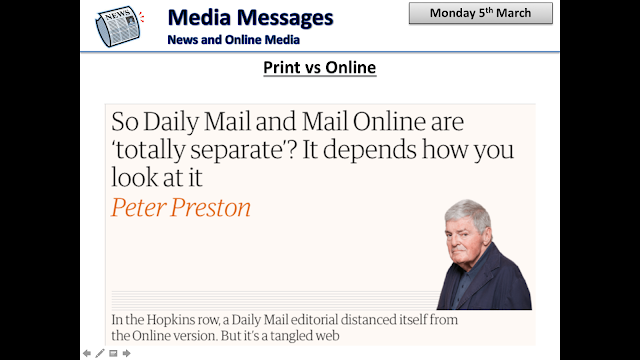Online news does have some clear advantages over print newspapers. One of these advantages may be that the news website is updated as events happen, therefore, the news can reach the audience quicker than the news in a newspaper due to the fact it cannot be updated. However, this does come with a disadvantage due to the fact that a newspaper will always stay the same therefore, it will be easier to navigate a story you that you have previously read.
Online news websites also allow you to interact with it, as it grants you the ability to share it to your social media account or comment on the article itself. The ability to do this makes it more convenient to talk about with friends and family, rather than having to show them a newspaper, and it also allows you publish your comments and views. However, a disadvantage which may come with this is that, there may or not be a sufficient monitoring system, therefore, there could be offensive comments made which will not be rectified.
Images and videos are also more prominent within the news website. This could be seen as an advantage as photographs and videos allow the news to be followed quicker and it actually shows people key evidence within the news.
Another advantage with online news is that, in most cases, it is completely free. The Daily Mail and the Guardian for example, are newspapers whose websites are free; however, the newspapers are not, and you have to travel to a shop and spend money on them everyday.
However, there are disadvantages which come with online news. One key disadvantage could be that, the news online is produced so fast, therefore, in some cases it may not be edited as meticulously as news in an actual paper. This could often give people the impression that online news cannot be trusted, as there is a greater chance that it is inaccurate.
Another disadvantage could be that in order to access news online you have to have Wi-Fi and a device to access the news from; for some people this may be near impossible. Therefore, having a physical copy may be more practical and reliable.
In my opinion I believe that for me online news is more practical; it is easier to get a hold of than a paper and is much more navigable.













